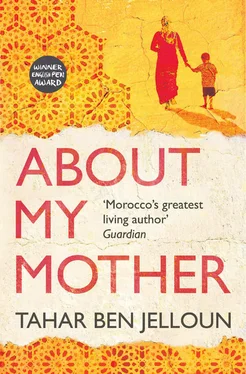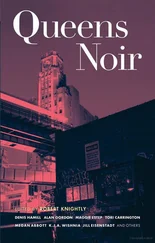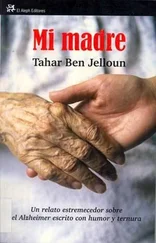The bridegroom’s family announce their arrival with a fanfare, shouts and ululations. Everybody sings: ‘He came, he carried her off, he did not forsake her. No, he did not forsake her. He has triumphed! He has triumphed and made her his!’ Meanwhile, the negafates present the bride, bedecked in sparkling jewellery, and demand money before the family will hand her over. The negafates chorus: ‘See the hostage, see the hostage. Come and deliver her. See the beautiful hostage, she begs you to deliver her! She is charm, she is beauty, she is reason. See the dates arrayed in mystery, see the pure honey. She is grace, she is soft as the feathers of a dove, she is supple as a reed, she is charm and beauty … ’
The mother steps forward first and tucks a large banknote into the head negafa’ s belt, followed by the father, who does the same, then the rest of the family, until the negafates consider the ransom sufficient.
It is time to depart. My mother wails, her mother wails, the servants all wail. The noise grows unbearable. It has to be stopped. The night weighs heavy on the heart of this young girl carried off by a man, a stranger, who’s about to possess her, make her his wife, make her happy perhaps.
The procession sets off from the house. My mother keeps her eyes down. She thinks she might faint amid the noise and tumult. Her husband takes her hand. Just two streets to cross. She walks, leaning against him. It’s the first time a man’s hand has held hers. She doesn’t think, she lets her mind go blank, she keeps walking, fear in the pit of her stomach, the afternoon’s Andalusian music, El Bhiri’s band, still ringing in her ears. She sees the hajamas — barbers acting as waiters for the night; she hears all kinds of noise. She walks on, not knowing exactly what awaits her. She feels sick, she gulps, her hands are clammy. She’s afraid she’ll panic and run away, like her first cousin, who fled when the man took off his seroual and his penis advanced towards her like a stick. The family all laugh when they tell the story. The girl’s mother gave chase, slapped her and took her back to the dakhchoucha, under the guard of the negafates.
No, she won’t flee, she’ll let it happen, wait until it’s over and, as soon as there’s blood on the sheet, she’ll go and hide behind the curtains. She dreams of her dolls, made from rags and matchboxes. She dreams of the holidays in Ifrane, at her uncle’s house. She thinks of Ali, the cousin who teases her, the one she played brides and grooms with when she was seven. She thinks about her parents, what people will say. She closes her eyes and reluctantly opens her legs, clenching her teeth. Not a word, not a cry. She faints. She is elsewhere, no longer there in that dakhchoucha, scented with rose water and musk, guarded by a squadron of negafates. She’s somewhere else, in the cornfields, jumping from terrace to terrace, flying over Fez, disappearing into the blue of the sky. Something like a biting, pinching sensation, then she feels warm liquid trickle between her thighs.
The next day is the sbohi. All went well, so they say. The husband sent trays to his new bride’s family piled high with dried fruit and nuts: a sign of satisfaction.
My mother never told me about her wedding. She kept it a secret: there are things you don’t tell your children. My grandmother told me a little about it, when I was very young. After the sbohi, after the second night, my mother, like all young brides, was put through her paces by her mother-in-law, who had arranged for the delivery of three large shad — the migratory fish that swim up the Sebou in spring, the fish with a thousand and one bones and a very particular taste, which are notoriously difficult to cook. My mother rolled up her sleeves, assuming her place in the kitchen, where no one was allowed to help. She spent all morning cleaning the three fish and then marinated them in a sauce made from coriander, cumin, mild paprika and spicy paprika, a little garlic, salt and pepper. She cooked some of the fish in a tagine and fried the rest in a light oil. At around one o’clock in the afternoon, the two dishes were placed in a tbak and conveyed to her in-laws, accompanied by a large tray of plump Medjool dates and a basket of seasonal fruit.
My mother did not eat that day. She had no appetite. She waited for the plates to be returned. Towards the end of the afternoon, a negafa came to the house singing the call to the Prophet, following it with ululations. The plates had come back, with gifts. At last! My mother had passed the test. Her mother-in-law had no reason to worry: her son would be well fed! After the seventh day, relaxed and happy now, the families met again. The husband took his wife to live in a little house next to his parental home.
My mother has always cared about the way she looks. She’s never worn dark colours, she loves white, pale yellow, beige. She believes colours should make the heart beat faster, that you shouldn’t darken things: a soothing colour is an opening up to life. She used to take especial care in choosing her headscarves, of which she had many. I don’t recall ever seeing my mother with her hair flying in the wind or without a scarf. One time, when she was asleep in the hospital, her headscarf slipped, revealing some white hair. I looked away; she wouldn’t have wanted me to see it.
My mother doesn’t like being in dimly lit rooms. She demands light. She says: ‘Light opens and calms the heart. It’s a sign of joy, a sign of generosity.’ One of my uncles was very frugal, miserly even, a few candles were enough to light his house. He lived in the dark. His wife, too, was afraid of light, of any brightness. They were people who didn’t like to show themselves in daylight. Terrified of the evil eye, they lived a semi-clandestine existence in the belief that other people looking at them could only bring harm. So, no light. My mother didn’t like going to their house, though she accepted this foible and all their petty-mindedness. When they came to our house, they were amazed to see so much light. My uncle would say: ‘What a waste! All these light bulbs really aren’t necessary. We don’t need that much light just to see each other.’ My mother didn’t like mean people, but she’d never criticise. She’d say: ‘Everyone lives as they choose. I don’t judge. I’d rather not spend time with people who think money’s more important than human beings. Money’s what our ancestors thought of as the dirt of life, the debris of time. So I hope people who hoard it know that there’s no room for bank accounts in a coffin!’ She’d laugh about it, although she was sorry not to have enough money herself to live better.
Mother’s naive and takes herself seriously. She loves to laugh but she interprets everything literally. Father would tease her. He could be brilliantly funny and sardonic. Some people in the family liked this quick-wittedness, others feared his sharp tongue and kept their distance. My mother didn’t like my father’s joking. Now, she talks about those days with regret: ‘Your father wasn’t fair to me. He hurt me but he wasn’t a bad man, he worked all his life. He never did well in business, like his friends; it made him bitter and jealous of other people’s wealth. I didn’t like that in him. He could wound people, not realising how much his sarcasm upset them. Afterwards, he’d be surprised that they were annoyed or cold towards him. He’d speak his mind, didn’t keep anything to himself. He was always embarrassing me. Some of our friends would come and see me when they knew he was away travelling. They’d rather not have to see him. The things he’d say! He was so clever, but what’s the use of cleverness when it’s so brutal and unfeeling?’
Читать дальше












